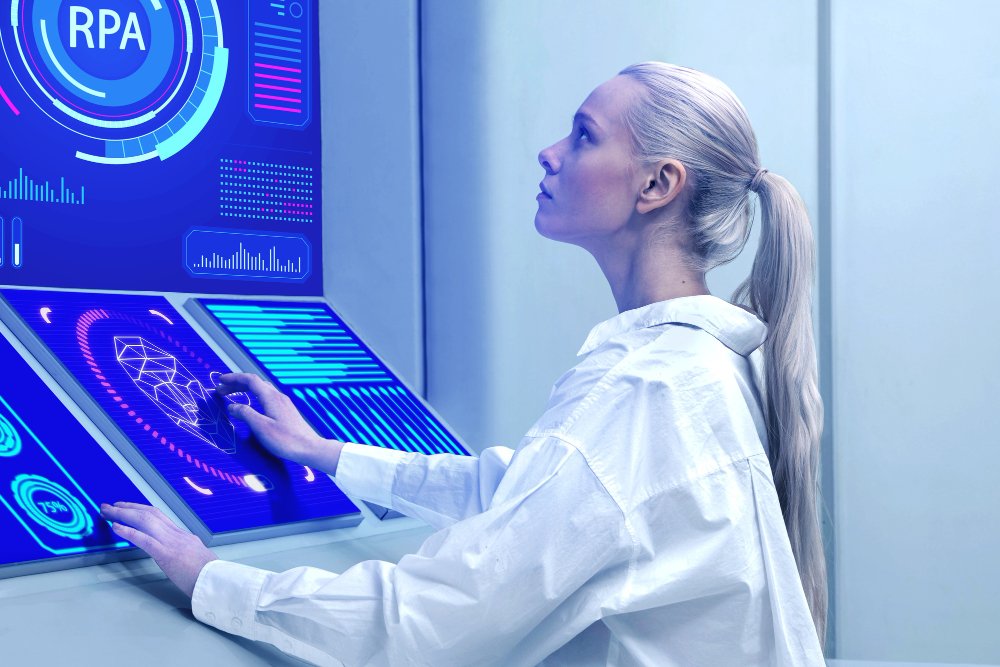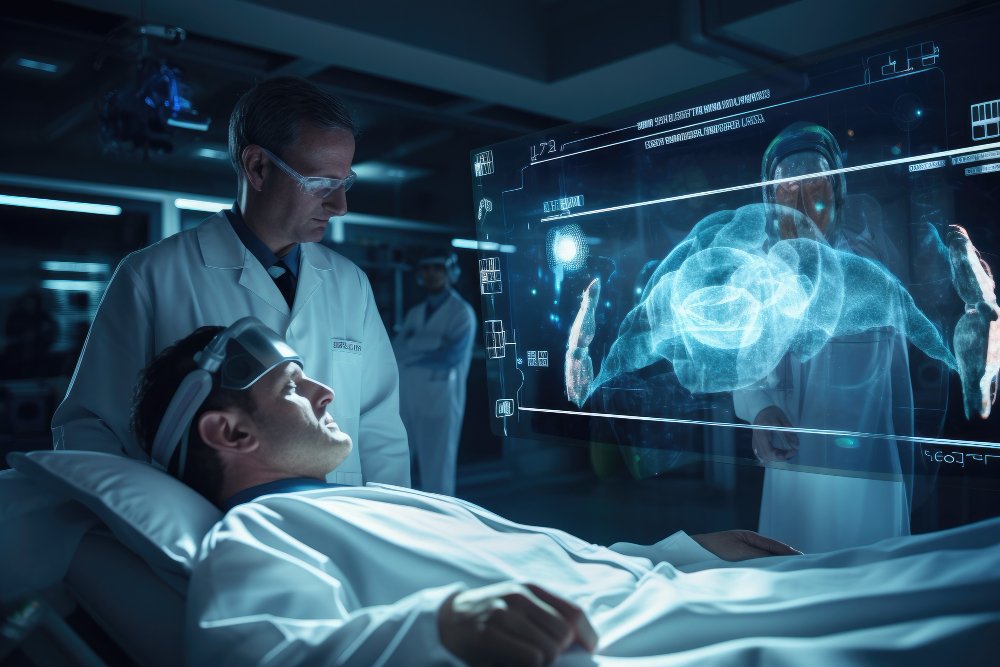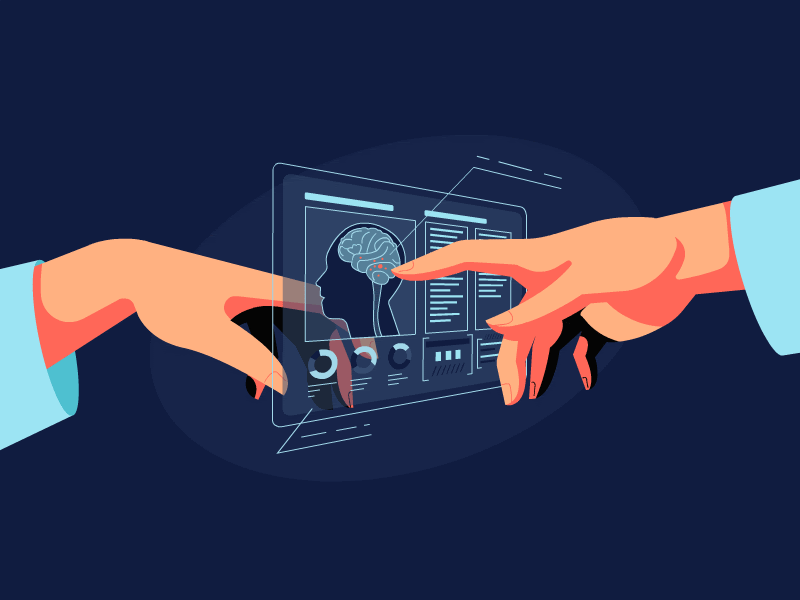The healthcare industry is on the brink of a revolution, one where artificial intelligence isn’t just a supporting tool but a transformative force. In the next five years, AI will shift from novelty to necessity, forever changing how we approach diagnosis, treatment, patient care, and even medical research. Imagine a future where personalized care is not just for a select few but an achievable standard for all. This is where AI is steering us, and the implications are as promising as they are challenging.
AI and human intelligence will work hand in hand, creating a healthcare landscape where personalized care, accelerated research, and proactive health management become the new standard.
Isabelle Ari

Beyond Diagnostics, AI Is the Doctor’s Partner
AI’s role in diagnostics is already established, but in the coming years, it will evolve into a true partner for healthcare providers. Instead of simply flagging abnormalities in medical images or suggesting possible diagnoses, AI will support physicians through every stage of patient care, blending analytical insights with intuitive assistance. Imagine a system that knows patient histories, genetic information, and even environmental factors, and uses this data to tailor recommendations and treatments. In five years, AI will empower doctors to make precise, informed decisions faster than ever, particularly in fields like oncology and cardiology, where early detection is critical. Physicians will rely on AI to identify patterns across millions of records, highlighting treatments that are more likely to succeed based on real-world data.
AI-assisted diagnostics will make specialized knowledge accessible in underserved regions. Through a tablet or smartphone, healthcare workers could harness AI’s diagnostic powers to provide remote care, making high-level treatment accessible to all.
Revolutionizing Patient Care: The Rise of Personalized Medicine
A shift toward patient-centered, personalized medicine is one of AI’s most exciting promises. By 2029, routine appointments and treatments will have an AI component, analyzing lifestyle, genetics, and personal history to guide customized treatment plans. No longer will two patients with similar symptoms receive the same treatment—AI will ensure each receives a plan tailored specifically to their unique profile.
For chronic illness patients, this could mean predictive monitoring that alerts them before symptoms worsen, ultimately reducing emergency visits. Likewise, wearable devices with AI will track data in real time, allowing for adjustments in care that meet patient needs instantly. Imagine a world where AI, using insights from both personal and population data, can suggest dietary adjustments or alert you to potential health risks long before they appear on the surface. In the next five years, AI could turn proactive health management from an ideal into a reality, helping patients engage with their own health in ways they’ve never been able to before.

AI’s Role in Medical Research & Accelerating Discovery
While diagnostics and patient care are obvious frontiers, AI’s impact on medical research may be even more transformative. Research processes that once took years to complete could, within a decade, be accomplished in months. AI algorithms will analyze genetic sequences, chemical compositions, and past trial data to identify promising new treatments and drugs. Researchers will spend less time on trial-and-error, as AI pinpoints the most promising compounds and potential treatment methods with precision.
This acceleration extends to clinical trials, where AI can help match participants with studies that suit their specific genetic makeup or health profile, drastically improving trial outcomes and saving valuable time. In five years, AI will likely help facilitate the development of treatments for rare diseases, tailor medications to individual genetic profiles, and perhaps even expedite the path to a cure for certain cancers. The combination of AI’s vast computing power and human intuition will create a golden age in medical research, where cures, therapies, and innovations are discovered faster than ever imagined.
A Vision for the Future
As AI integrates further into the healthcare system, the role of the human professional will be elevated, not replaced. The next five years are poised to bring a healthcare landscape where AI and human intelligence work hand in hand, allowing for breakthroughs we can only begin to imagine. A new era is dawning, and it’s one where AI won’t just support healthcare—it will reshape it.





